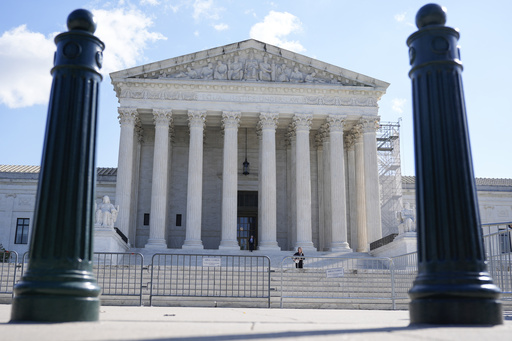WASHINGTON — On Monday, the Supreme Court dismissed a challenge regarding Hawaii’s gun-licensing law, although three justices hinted they might be open to revisiting the matter in the future.
The court did not provide specific reasoning behind their decision in a brief order opting not to hear the case. However, Justice Clarence Thomas, with Justice Samuel Alito concurring, expressed his intention to consider a case that would “reaffirm that the Second Amendment deserves the same level of respect as any other constitutional right.”
Additionally, Justice Neil Gorsuch suggested the court might later review the matter associated with Christopher L. Wilson, who contends that his Second Amendment rights were infringed upon when he was charged for carrying a firearm without a license.
These comments come at a time when several conservative-leaning states are moving away from mandates requiring licenses for individuals to carry firearms in public. Wilson’s attorney, Benjamin Lowenthal, indicated that this matter is likely not concluded. “The constitutional issue endures in our state, and as long as this problem exists, there will be ongoing constitutional challenges,” he remarked.
Wilson faced charges in Hawaii, which historically had stringent licensing regulations. According to prosecutors, he was discovered hiking on private property at night with a handgun concealed in his waistband back in 2017.
He contested the charges, referencing a crucial 2022 Supreme Court ruling that broadened gun rights and altered the framework of firearms legislation throughout the U.S. A state court judge ruled in his favor, dismissing the charges entirely.
However, Hawaii’s highest court subsequently reinstated the case in a harshly worded opinion, dismissing the 2022 Supreme Court ruling as “fuzzy” and “backward looking,” particularly criticizing the need for contemporary gun laws to be based on historical regulations of the nation.
Wilson then appealed to the Supreme Court, urging the justices to overturn the Hawaii Supreme Court’s decision. He argued that those justices disregarded the opinions of the higher court in favor of state handgun licensing rules that he claimed were excessive.
In their defense, prosecutors asserted that the case fell under state jurisdiction, which gave the Hawaii Supreme Court authority. They highlighted a concurrence from Justice Brett Kavanaugh related to the Supreme Court’s decision on expanding gun rights, in which he, along with Chief Justice John Roberts, stated that the ruling did not inhibit states from maintaining licensing stipulations.
Following these developments, Hawaii has revised its gun licensing process to eliminate the need for approval to obtain firearm permits.
